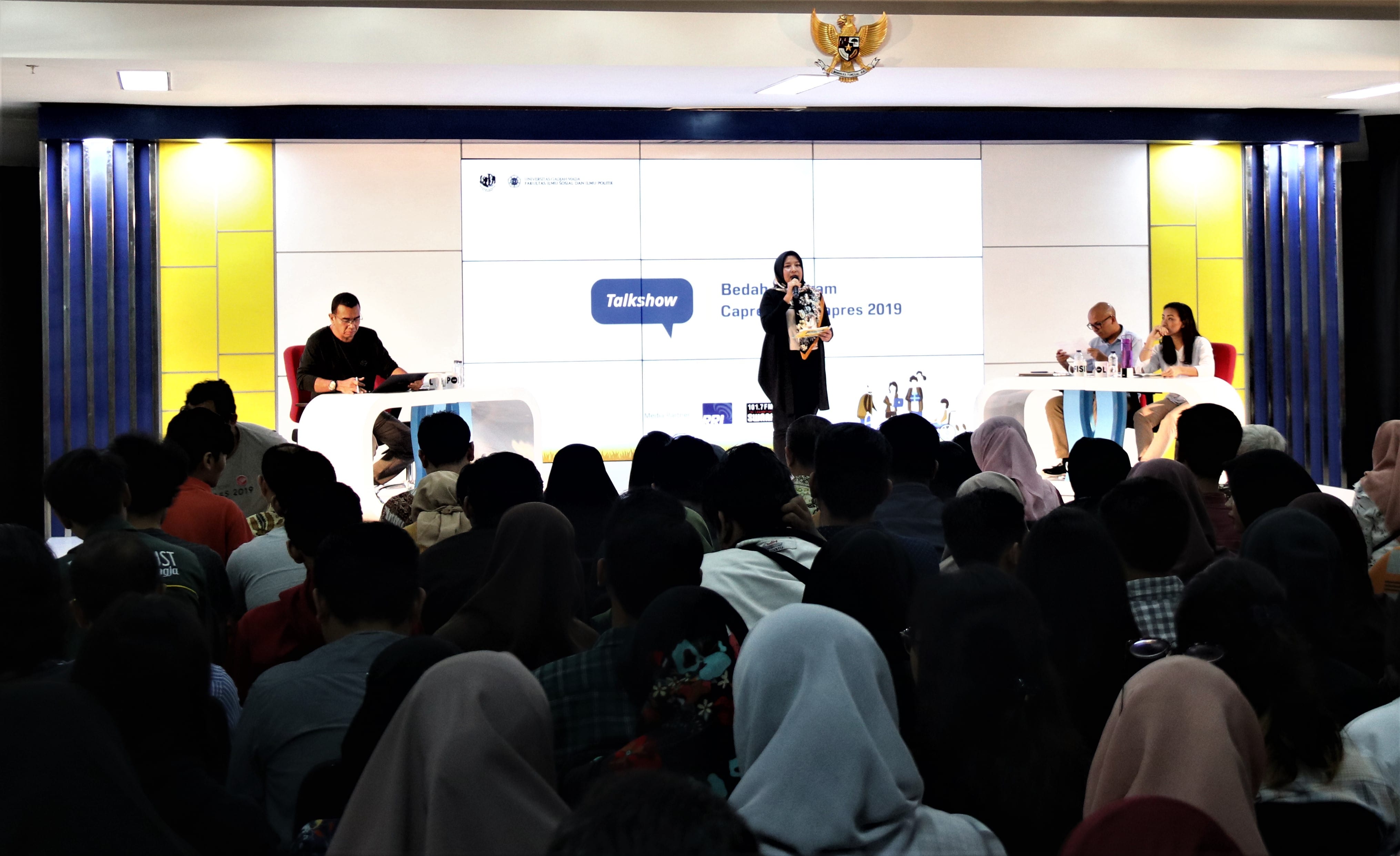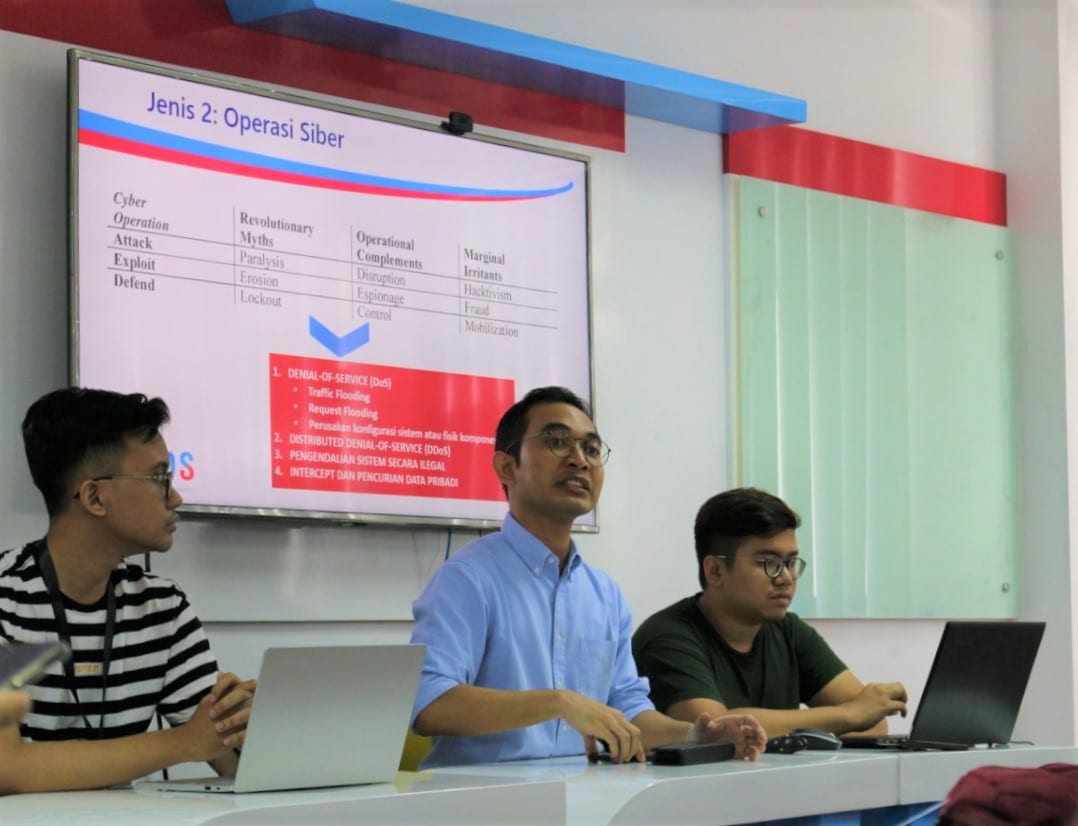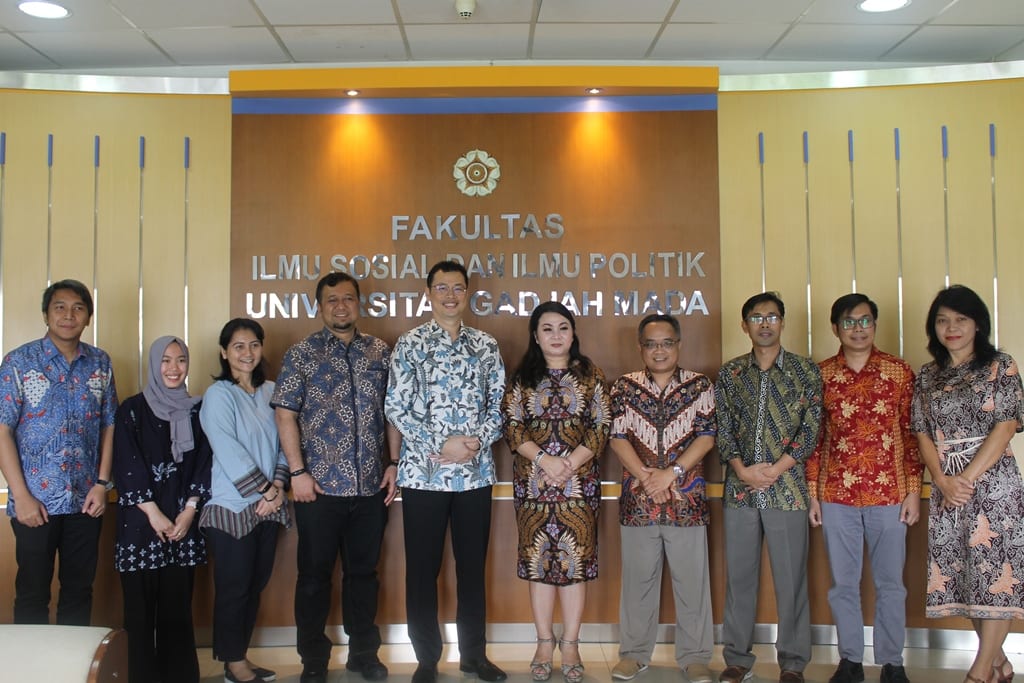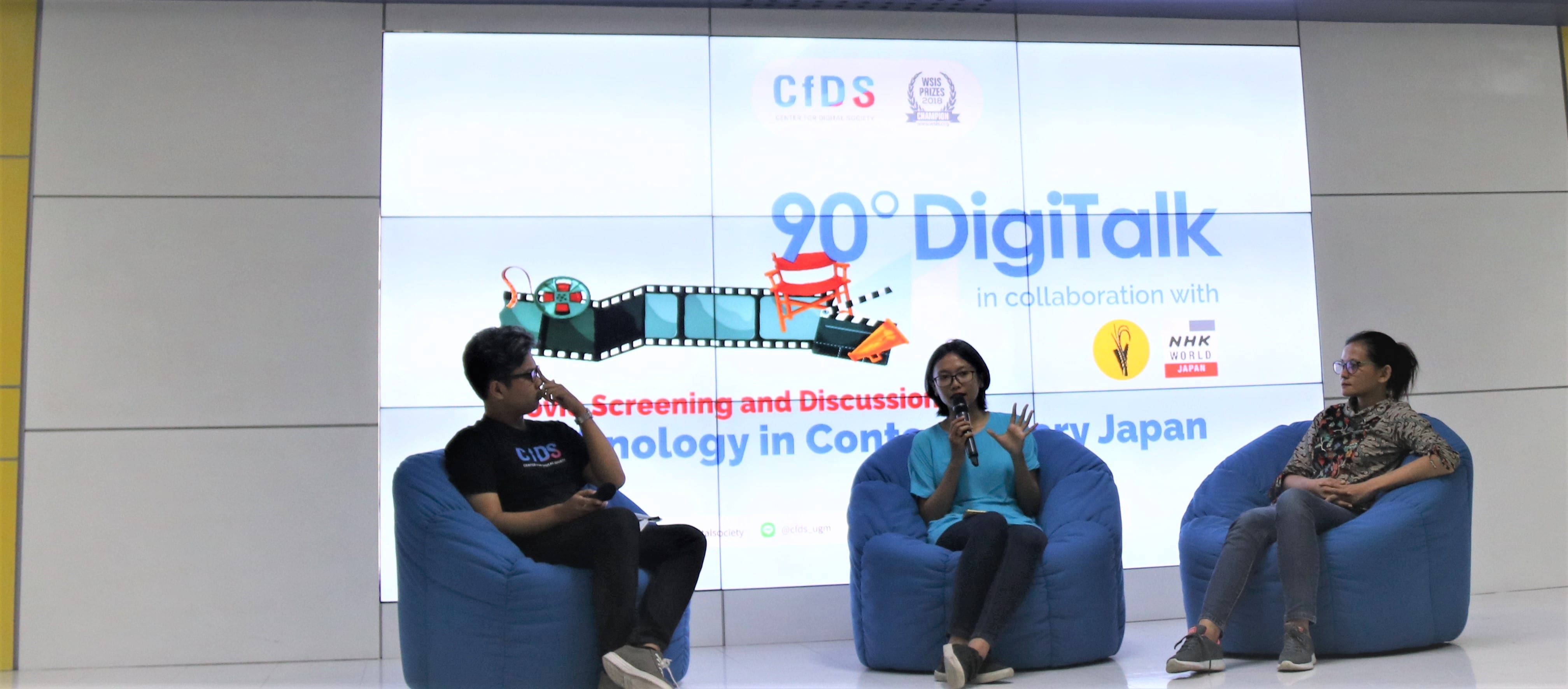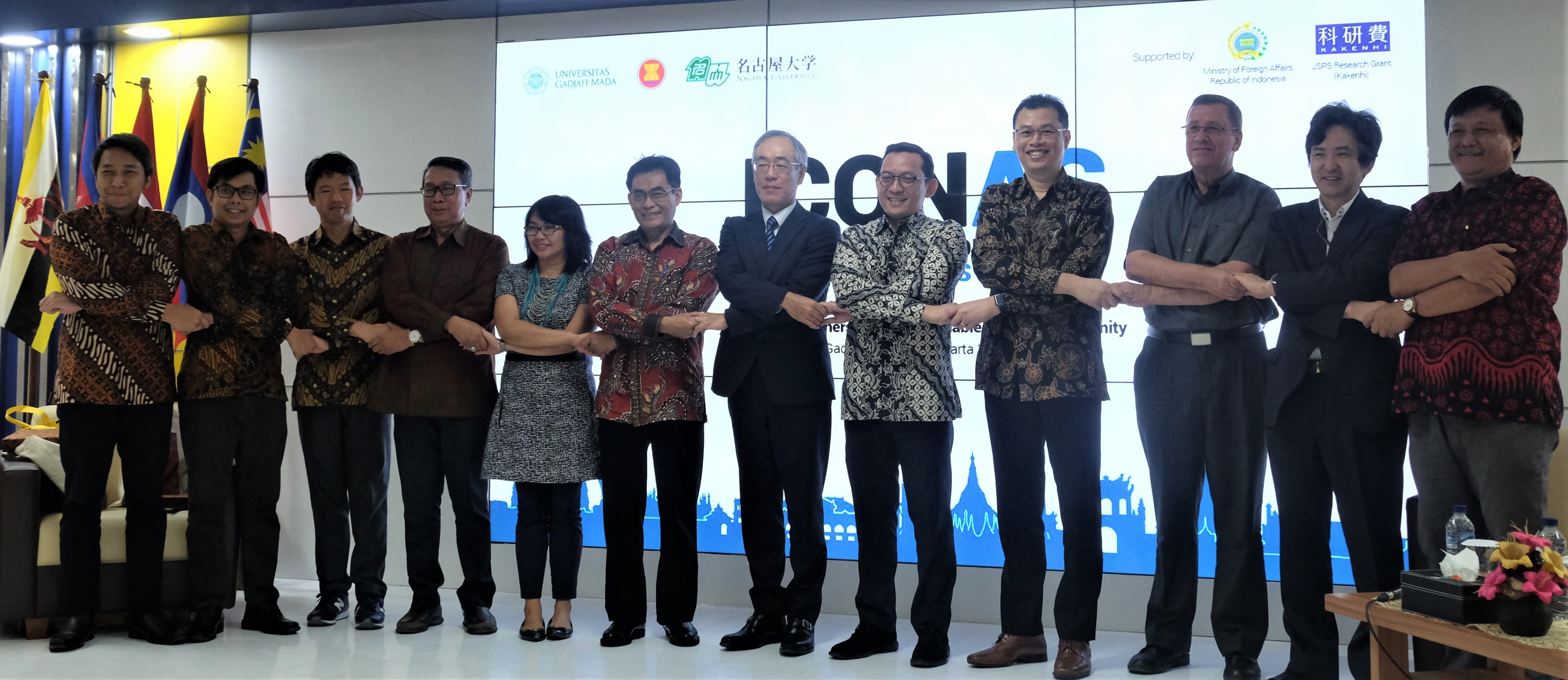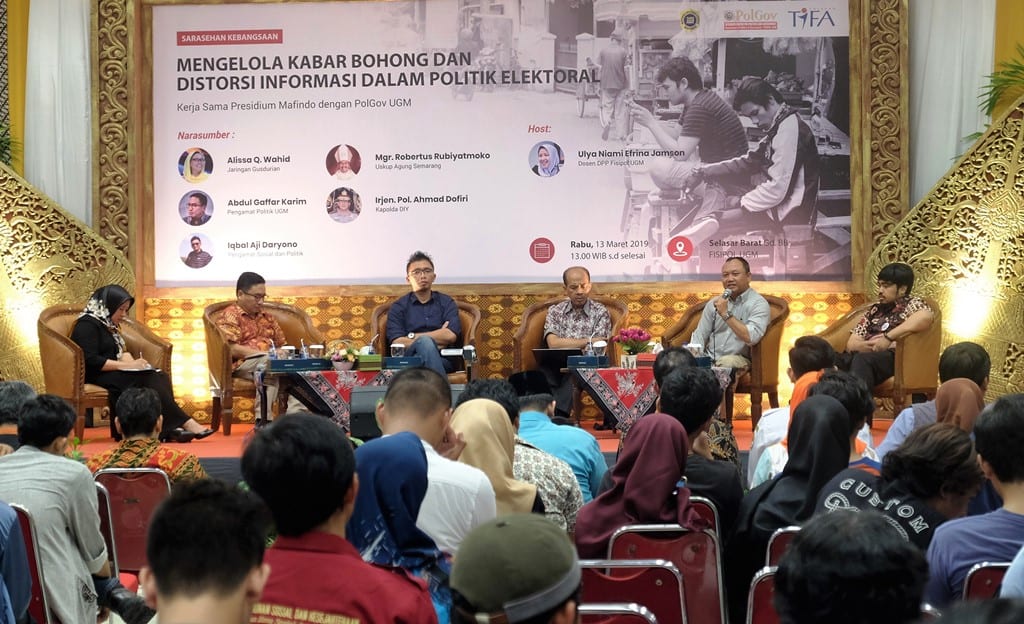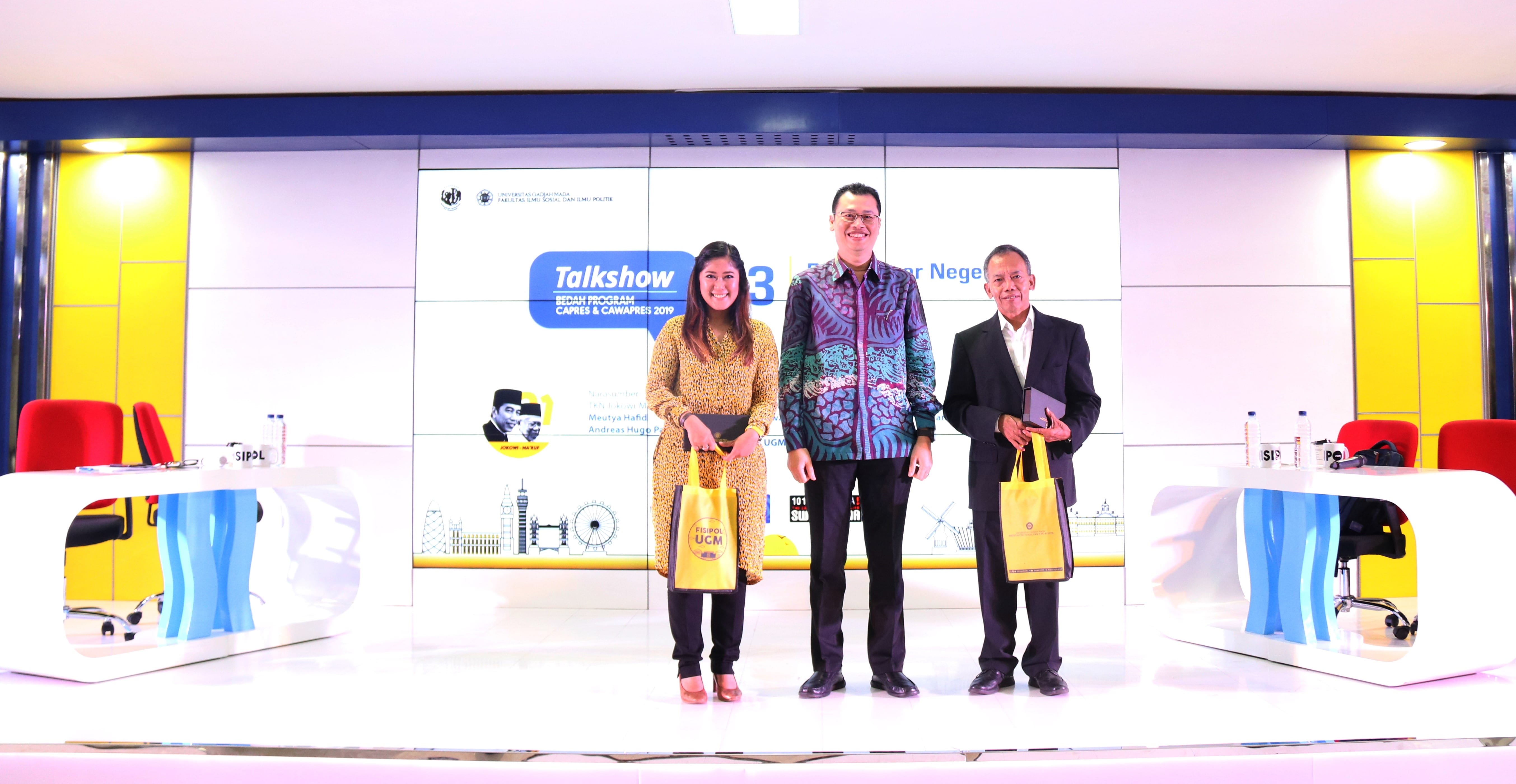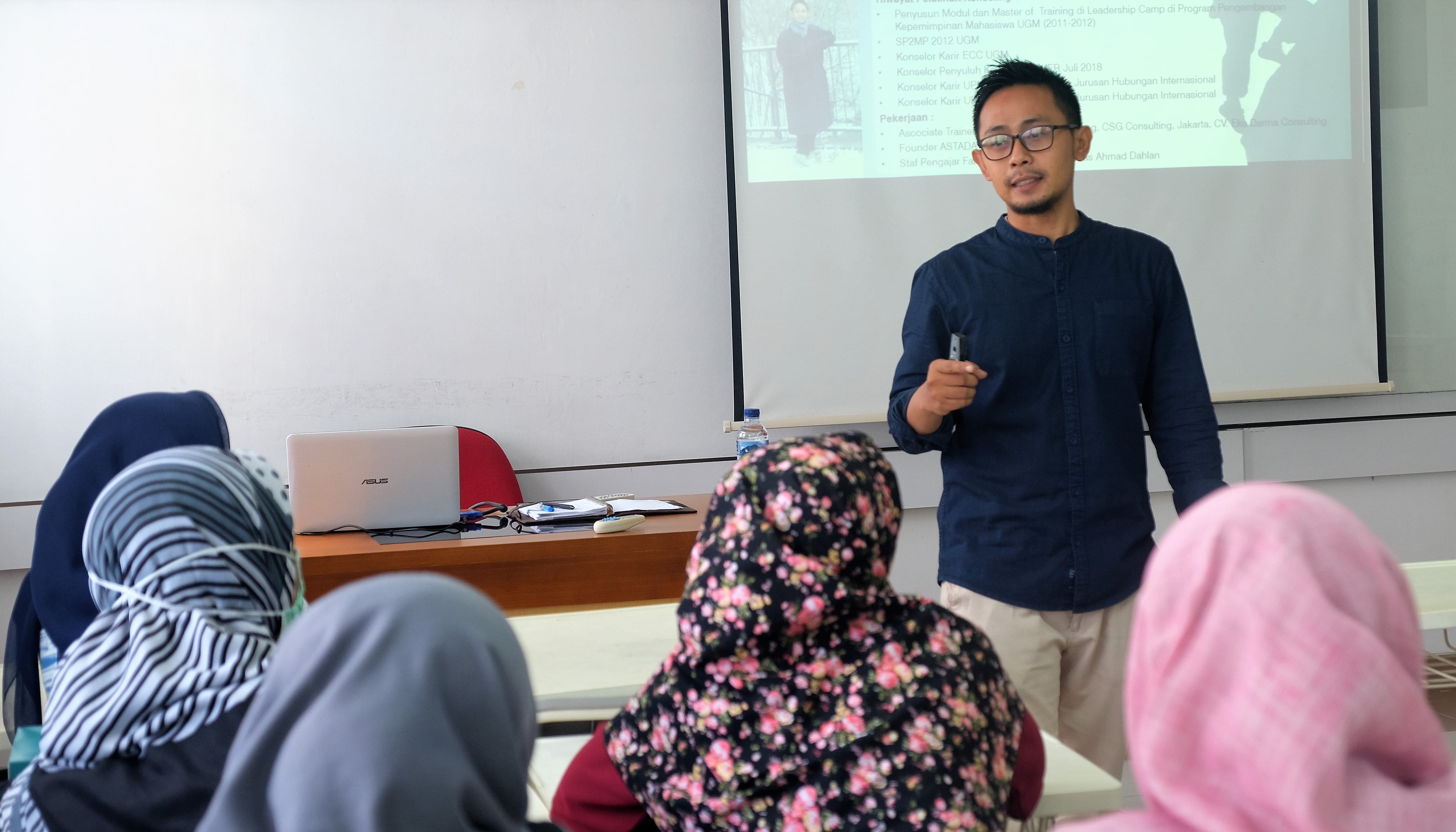Yogyakarta, 21 March 2019 – Fisipol UGM held the fourth round of the talk show to discuss the programmes of the Presidential and Vice-Presidential candidates. The theme of this talk show was “The Basic Rights of Citizens and Social Welfare”, which covered issues surrounding the basic needs of citizens. Issues such as social security (BPJS), health, education and the rights of the marginalized groups (which included gender equality, child welfare, disability and minorities). This event took place on Auditorium Mandiri at the 4th floor of Fisipol UGM building and was held from 9 am until 12 pm. This event was broadcasted by RRI and Fisipol UGM’s Instagram Live. It is also available on the YouTube channel of Fisipol UGM.The Tim Kampanye Nasional (TKN) of Joko Widodo and Ma’aruf Amin was represented by Arya Sinulingga. Meanwhile, Dirgayuza Setiawan and R. Sasrawati Djojohadikusuma represented the Badan Pemenangan Nasional (BPN) of Prabowo Subianto and Sandiaga Uno. The panel of experts from UGM consisted of Wening Udasmoro (the Dean of the Faculty of Cultural Sciences UGM), Hakimul Ikhwan (the Secretary of the Department of Sociology UGM), Laksono Trisnantoro (the Dean of the Faculty of Medicine, Public Health and Nursing UGM), Suzanna Eddyono (Lecturer at the Department of Social Development and Welfare UGM) and Agus Suwignyo (Lecturer at the Department of History UGM). Ulya Niami Efrina Jamson, from the Department of Politics and Government UGM, hosted for this event.This event was opened by Dr. Erwan Agus P., M.Si., the Dean of Fisipol UGM. He explained that this talk show is not meant to be a platform for debate, rather to discuss the programs of both sides, viewed from the academical and theoretical perspectives, as well as to inform the youth.
Yogyakarta, 18 April 2019–After the 2019 General Election, the Center for Digital Society (CfDS) held a presentation to introduce the forms of cybersecurity threats that have occurred surrounding the general election. Despite the success of the 2019 General Election, various forms of cybersecurity threats still exist.
The General Election & Cybersecurity Threats
Numerous cases of cybersecurity threats before the general election included the spread of hoaxes. Notable examples such as the false information about the date of the general election and the defamation of the candidates have occurred in order to discourage or even prevent citizens from giving their vote. Meanwhile, hacking and data manipulation are the examples of cybersecurity threats during and after the general election.
Yogyakarta, 18 March 2019 – The Faculty of Social and Political Sciences (Fisipol) UGM signed a cooperation agreement with Perusahaan Gas Negara (PGN) on Monday (18/3).
This agreement was laid due to the mutual concerns of Fisipol UGM and PGN on the future of global energy management. According to Fisipol UGM, energy is the key to economic development in this industrialized world. Demands for energy will always increase, as the developed states consume massively while consumption is increasing in the developing states. Through this cooperation, Fisipol UGM wishes to ensure that Indonesia will formulate the proper strategies.
Center for Digital Society (CfDS) held a movie screening entitled “Technology in Contemporary Japan” on Monday (14/3). This event took place in the Auditorium at the 4th floor of Fisipol building. Fisipol collaborated with the Documentary Film Festival (FFD) and NHK World-Japan to organize this event. “Happier Than Real” and It’s a Start-up Life” were the two films that were screened. Furthermore, these two films were the central topic of the discussion after being screened. Numerous participants that hailed from various universities attended this event. Dr. Dian Arymami, S.IP, M.Hum (lecturer from the Department of Communication Studies) and Ukky Satya (the Coordinator of FFD) hosted this event.
Yogyakarta, 14 Maret – Center for Digital Society (CfDS) held a movie screening entitled “Technology in Contemporary Japan” on Monday (14/3). This event took place in the Auditorium at the 4th floor of Fisipol building. Fisipol collaborated with the Documentary Film Festival (FFD) and NHK World-Japan to organize this event.
“Happier Than Real” and It’s a Start-up Life” were the two films that were screened. Furthermore, these two films were the central topic of the discussion after being screened. Numerous participants that hailed from various universities attended this event. Dr. Dian Arymami, S.IP, M.Hum (lecturer from the Department of Communication Studies) and Ukky Satya (the Coordinator of FFD) hosted this event.
Yogyakarta, 13 March 2019 – The development of law and politics in ASEAN needs to be followed by the integration of values and identities. “The development of law, institution and politics in ASEAN should be developed in accordance with a sense of ‘togetherness’ in ASEAN,” as stated by the Secretary of the Directorate of ASEAN cooperation of the Ministry of Foreign Affairs of the Republic of Indonesia, Verdi Kurnia Buana, which was a keynote speaker at the International Conference on ASEAN Studies (ICONAS) 2019. This event focused on the theme of “Rethinking Law, Institution and Politics in Advancing Partnership for Sustainable ASEAN Community.” According to him, these two aspects are the key in maintaining ASEAN’s unity, centrality and longevity as a regional organization. ASEAN’s centrality is important, particularly due to the changes in the geopolitics and geo-economics of the Indo-Pacific region. “ASEAN is located within the Indo-Pacific region, which today witnesses squabbles between world powers.”Meanwhile, the Ambassador of Japan’s Mission to ASEAN, H.E. Kazuo Sunaga, explained about Japan’s foreign policy in regard to ASEAN within the “Free and Open Indo-Pacific Strategy” (FOIP). This policy considers ASEAN as a key actor in establishing a cooperation between Asia and Africa.
Yogyakarta, 13 March 2019 – 5 speakers were present during the nationhood workshop, entitled “Managing False News and Information Distortions Within Electoral Politics.” This workshop was held by the Department of Politics and Government Fisipol UGM, Polgov Research and the Presidium of Indonesia’s Anti False News Society (Malfindo) on Wednesday (13/3) at the West Hall of Fisipol UGM.
According to Septiaji Eko Nugroho, from Mafindo, the main challenge that Indonesia faces is how to counter false news. “We can learn from Myanmar, which has been plagued with hoaxes and this led to a genocide towards the Rohingya people.”
Yogyakarta, 6 March 2019 – Affirming Fisipol UGM’s pledge of providing political education before the upcoming General Election that will be held on the 17th of April 2019, Fisipol UGM held the third round of the talk show to discuss the programmes of the Presidential and Vice-Presidential candidates. This event focused on the theme of Indonesia’s foreign policy and was held on the Auditorium Mandiri at the 4th floor of Fisipol UGM from 9 am until 12 pm.This event was broadcasted by RRI and was also available through Fisipol UGM’s Instagram Live. Furthermore, this event is also available to watch on Fisipol UGM’s YouTube channel.In this event, Meutya Hafid represented the Tim Kampanye Nasional (TKN) of Joko Widodo and Ma’aruf Amin. Meanwhile, the Badan Pemenangan Nasional (BPN) of Prabowo Subianto and Sandiaga Uno was represented by Hazairin Pohan.
- Self-Reflection and Answering the Question of ‘What Should Be Improved?’
Personal development consists of three aspects; general plus technical knowledge, experience and people skills. Other aspects include attitude and personality. A lack of presentation skills is one of the examples and can be mitigated by participating in internship programs. “Personal branding is important, without having to be overconfident on ourselves. The time that we spent on internship programs can be used to fill this gap,” as Luqman stated.
- Mastering the Tripod Concept
The next aspect is understanding the tripod concept, which contains mastery on one’s field, commitment plus work ethics and etiquette. Similar to a tripod, if one leg is missing, it cannot function properly,” Luqman said. Furthermore, internship programs can also be utilized to prepare for the future career. What are the differences between a career and a job?
“The Empowerment of Women in Contemporary Indonesia: Progress and Challenges” international conference was held under a cooperation between the University of California Los Angeles (UCLA) Center for Southeast Asian Studies and the Indonesia Women Alliance (IWA). This conference was held on 8-9 February 2019, at the 314 Royce Hall, UCLA, and was attended by 16 presenters worldwide that presented their papers regarding gender issues in Indonesia. This conference highlighted the research surrounding socioeconomic changes, religion and politics that have advanced or inhibited women empowerment in Indonesia in the past decades. There were five panels at this conference, which were:

